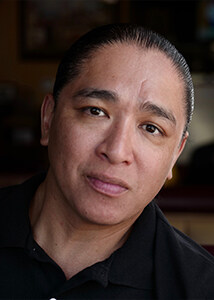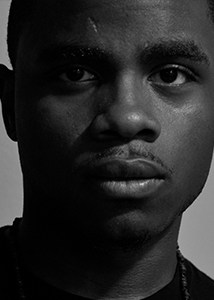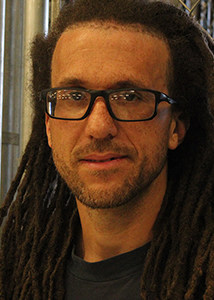PEN America’s Writing for Justice Fellowship commissions writers—emerging or established—to create written works of lasting merit that illuminate critical issues related to mass incarceration and catalyze public debate.
The Fellowship aims to harness the power of writers and writing in bearing witness to the societal consequences of mass incarceration by capturing and sharing the stories of incarcerated individuals, their families, communities, and the wider impact of the criminal justice system. Our goal is to ignite a broad, sustained conversation about the dangers of over-incarceration and the imperative to mobilize behind rational and humane policies. As an organization of writers dedicated to promoting free expression and informed discourse, PEN America is honored to have been entrusted by the Art for Justice Fund to engage the literary community in addressing this pressing societal issue.
Meet last year’s inaugural 2018 Writing For Justice cohort here, and learn about our current Fellows, their projects and mentors below.

Meet the 2019-2020 Fellows

Arthur Longworth
Monroe, Washington
Through the voice of a state-raised prisoner, Arthur Longworth will work on Journal of a State-Raised Prisoner in the Age of Mass Incarceration, a book-length compilation of creative nonfiction essays that elucidates the foster-care-to-prison pipeline.
Longworth will be working with journalist Maurice Chammah.

Cleyvis Natera
Montclair, New Jersey
Cleyvis Natera’s personal essay will illuminate mass incarceration’s painful impact on members of an Afro-Dominican immigrant family and their surrounding community through the story of her own brother’s arrest for minor offenses and subsequent deportation.
Natera will be working with writer Nelly Rosario.

C.T. Mexica
Phoenix, Arizona
C.T. Mexica will work on 18 With a Bullet: Or, With Love & Respect, a nonfiction memoir of intergenerational incarceration, anchored in the author’s incarceration from the age of 13 to 21 for acts of mutual violence committed against other bonded males, and transformation to a postdoctoral researcher and emerging writer.
Mexica will be working with memoirist Piper Kerman.

J.D. Mathes
Tehachapi, California
J.D. Mathes will work on In Strange Company, a novel that reveals a free nation’s dark impulse toward punishing the mentally ill and the addicted, told through the story of a young man struggling with the trauma of prison to find peace, grace, and humanity through learning music.
Mathes will be working with writer and editor Kerri Arsenault.

Jonah Mixon-Webster
Flint, Michigan
Jonah Mixon-Webster will create Protocol, an immersive two-fold documentary poetics project. The full length hybrid manuscript and digital archive aims to unpack—through dashcam footage, guerrilla audio recordings, arrest documents, and lyrical narration—the procedural relations between police officers and civilians in 21st century America.
Mixon-Webster will be working with the Vera Institute of Justice’s Policing Program Director Rebecca Neusteter.

Justine van der Leun
Brooklyn, New York
Justine van der Leun will combine narrative journalism, primary data collection and analysis, and investigative techniques to report on the structural, historic, cultural, and legal forces behind the criminalization of women’s defense and survival from abuse.
van der Leun will be working with investigative journalist Jordan Smith.

Sterling Cunio
Salem, Oregon
Sterling Cunio will write and produce Austin’s Echo, a cross-time dramatic dialogue between Austin Reed—who in the 1830s was the first African American to write a memoir about his incarceration—and a 21st-century prisoner. The similarities of prison dynamics, reform debates and social issues are compared through poetic narration, theatrical elements and music to demonstrate how prison is virtually the same after 185 years.
Cunio will be working with hip hop theater artist Baba Israel.

Vivian D. Nixon
New York, New York
Vivian D. Nixon will write a personal essay as a precursor to a book-length memoir chronicling her passage from a stable suburban home through phases of mental illness, addiction, incarceration and re-invention. The work exposes the complex individual and structural drivers of mass criminalization through the lens of race and gender.
Nixon will be working with writer Kiese Laymon.C




